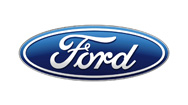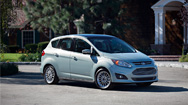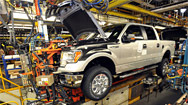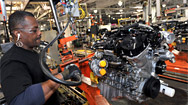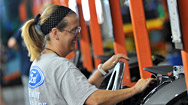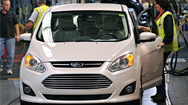Mark Lee
Executive Director
SustainAbility

Nearly all the climate data coming at us reveal accelerating negative trends. The 13 hottest years on record have all occurred since 1998. The International Energy Agency says we’re now at risk of locking in irrevocable climate change impacts by as early as 2017 and probably no later than 2022. Yet, we’re not getting responses from national governments, and we have had very few strong responses from the markets. Investors, for example, do remarkably little to price carbon risk into their investments.
Industry thus far has relied heavily on a model of voluntary practices; I wonder if we’re at a point where the limits of that model are being breached. We live in an “age of acknowledgment” in which increasing numbers of companies and private-sector leaders recognize and state sustainability challenges, from climate change to biodiversity, but don’t do enough about them. In too many cases, corporate responsibility reporting, coupled with eco-efficiency, is seen as enough, leaving us awash in companies setting relative performance improvement targets rather than committing to absolute shifts. Also, we’re still completely embedded in the good and bad of the fossil fuel energy system – from the real economic and social benefits to the enormous negative of global warming due to greenhouse gas emissions. To make progress, we’ll have to replace the economic and social benefits that fossil fuel use provides while dramatically diminishing its ecological harm.
The big question, then, is how to enable business to make the changes this planet needs. I think there are some remarkable efforts out there, including Ford’s development of a product plan that is based on stabilizing atmospheric carbon dioxide (CO2) concentration at 450 parts per million (ppm), along with pledges made by consumer product companies and apparel makers, among others.
Companies need to step back and look holistically at climate change and the full range of impacts it can have on a business, from sourcing to production to consumer relationships to end-of-life issues. Companies also must think about climate change as much more than an environmental issue. It’s a moral issue, a political issue and, of course, a business issue, and it’s unproductive to try to isolate climate in just one of those categories.
It’s worth noting that it isn’t all doom and gloom, and we shouldn’t overlook any pieces of good news. For example, between 2007 and 2012, there was a more than 6 percent decline in U.S. greenhouse gas emissions. And, yes, people will say that this was during a period of recession, which is true. But diminished economic productivity was not nearly the whole story, and we have to learn from and scale what was done right during this period.
My relationship with Ford, which has spanned well over a decade and more than one professional role for me personally, has given me a unique perspective into the automaker. Ford definitely stands out among a wave of early adopters that embraced a sustainability agenda even as the idea of sustainable development was still emerging.
This was partly due to the leadership of Bill Ford. But other striking examples were Ford’s early decision to leave the Global Climate Coalition, and the Company’s back-of-the-envelope calculation, in the early 2000s, about the direct and indirect climate impact of its operations and production. Ford’s willingness to explore the data and understand its role in the global debate was powerful in and of itself, and its willingness to publish that information helped shift the conversation.
The greatest testament, to me, however, is the Ford product plan based on stabilizing atmospheric CO2 concentration at 450 ppm mentioned previously. People can argue about whether 450 ppm is the right number and worry about whether everyone else is aligning their businesses in a similar way. But Ford’s plan is nonetheless light-years beyond where most others are in terms of putting their operations and impact in a larger economic and societal context.
Outside the environmental arena, Ford has consistently been a leader around human rights and labor rights – for instance, its early support of the United Nations Global Compact set it apart from its peers. This isn’t to say that all is perfect under the Blue Oval. But it does leave me thinking that sustainability has come to be baked into everything Ford does.
One aspect that Ford and others can improve upon is shaping consumer demand. While I understand how incredibly difficult it is to influence consumer fancy, I’m concerned that Ford and other companies let the markets dictate production volumes of more sustainable products. The issues we face are too serious to leave entirely to the whims of consumers. Companies spend enormous sums of money on advertising, so they obviously must feel they can influence consumer choices. From a sustainability perspective, we need companies to deliver increasing numbers of more sustainable products – and we need consumers to buy them.
Another challenge is that more than 50 percent of our planet already lives in urban locations, and that we will be about 70 percent urban, as a species, by mid-century. Ford has flirted with the development and delivery of a comprehensive urban mobility platform over the years and has been on the edge of breakthrough leadership, but neither Ford nor anyone else in the industry has yet seized on this and made it their own. I’d love to see Ford and the industry push harder at the system challenges in the ways that will be necessary to deliver the accessible, affordable, low-carbon mobility system required.



